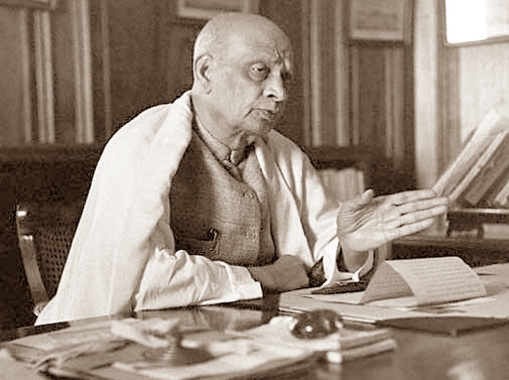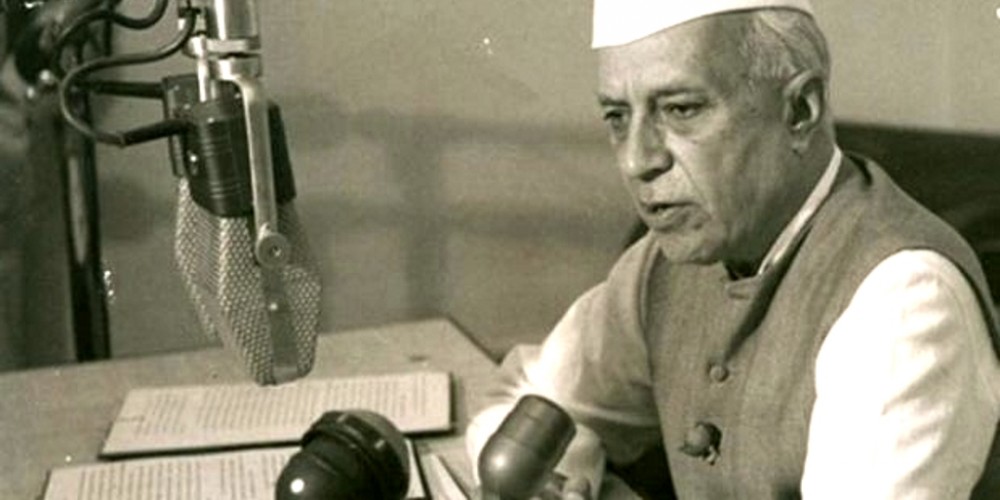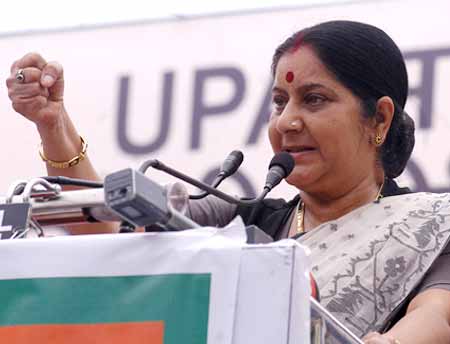First Prime Minister Jawaharlal Nehru is supposed to have built the foundations for the best foreign policy that India could ever have had. It can be argued that this is untrue. It is part of the propaganda that his followers have built around him right from 1947.
His descendants too occupied the post of Prime Minister and perpetuated this myth. The fact that most Indian history books follow the same line makes it difficult to even discuss a contrary narrative.
One big thing missed out is that the biggest component of Nehru’s foreign policy was “fear”.
Yes, you heard that right. Far from being the bold Foreign Minister that he was touted to be, he was probably quite a fearful one. He was weak and refused to think out of the box. There are a number of examples that bear this out.
For one, he was afraid to secure Kashmir for India. When India and Pakistan got Independence, Kashmir Valley was in limbo land. It was sort of independent entity for some time because the British had left and it was neither in India’s and Pakistan’s hands.
Nehru showed absolutely no interest in having anything to do with Kashmir despite the fact that he was a Kashmiri Pandit. The inaction continued even when Pakistan sent armed tribals to take over the Valley.
Nehru was still afraid to attack when the tribals seemed poised to take over Srinagar. This point was raised by Field Marshall SHFJ Manekshaw. During the post-Independence Kashmir crisis, Manekshaw was in the Directorate of Military Operations and in the thick of things.
 Manekshaw recalls that during the crucial meeting, while Nehru dithered, it was Deputy Prime Minister Sardar Vallabhai Patel who virtually gave the orders for the Kashmir operation. It could be said that we secured the Valley thanks to Patel and not Nehru.
Manekshaw recalls that during the crucial meeting, while Nehru dithered, it was Deputy Prime Minister Sardar Vallabhai Patel who virtually gave the orders for the Kashmir operation. It could be said that we secured the Valley thanks to Patel and not Nehru.
Two, this vacillation continued over China too. Any China foreign policy expert will tell you that since the nineteenth century, the China border had been extremely dynamic. While China never aspired to capture land far away it would always eye land near the borders.
It kept exchanging land between various powers by both force and treaties along the border. So when China approached Nehru for land to help it build a roadway to Tibet, it should have come as no surprise to Nehru.
However Nehru was surprised and refused point blank even though the Chinese offered both money and land for the same. Interestingly the Chinese then went straight ahead and made plans for the roadway and altered their maps accordingly.
Nehru was aware of this but was too scared to look at the problem in the eye. Even when the Chinese finally attacked in 1962, Nehru initially refused to counter-attack and did nothing as the Chinese Army made inroads.
At that time the Indian Air Force was superior to the Chinese Air Force and we could have given a good counter-punch. But for reasons best known to Nehru he refused to employ the IAF. The result was a humiliating defeat and an emboldened attack by Pakistan in 1965.
After the war Nehru refused to show courage and take the blame for the debacle. The fall guys were Defence Minister VK Krishna Menon and the then Army chief General PN Thapar.
During the Cold War, we were firmly allied with Russia and Nehru was too afraid to acknowledge that and formed something extremely hypocritical called the Non Aligned Movement.
Here’s why it had a hypocritical bunch of leaders. Gamal Abdel Nasser of Egypt openly took arms from USSR and with its backing waged war on Israel. Josip Broz Tito of Yugoslavia was an out and out Stalin man before his infamous split.
Sukarno of Indonesia was a Communist who received great help from both the USSR and China. The fifth Kwame Nkrumah of Ghana was also a known anti-American. The truth is that the five world leaders who were associated with founding the NAM were Communists (or closet Communists) who shared sympathies with the USSR.
While most Prime Ministers and Foreign Ministers were scared to deviate substantially from the path of Nehru (or did so quietly without openly saying so), current Prime Minister Narendra Modi has taken a much bolder approach.
Even though he was banned in the US and President Barack Obama seemed to be anti-India for most of his term, Modi embraced Obama head-on—So much so that the Obama-Modi bromance has been written much about in the foreign press.
China and Russia are also being aggressively pursued. Till recently most Indian leaders would be scared of engaging the Big 3 in this manner but Modi has proved that it doesn’t have to be a Zero Sum Game. We can have good relations with all three and get benefits from them and not at the cost of the other.
While warming ties such, Modi has also become aggressive on the Sino-Indian border to check their advances and is open to getting more allies in the rest of Asia to counter China. That’s the true art of diplomacy—to talk sweetly, act tough and focus on economic ties too.
Modi has also signed crucial uranium fuel deals with Australia, Canada and Ukraine. He looks to be building ties with every country in the world, no matter what its ideology. Another example is his taking ties to the next level countries like Israel, Iran and UAE even though the former and the latter two are rivals.
He has adapted this dual policy on Pakistan. By strengthening ties with every country around our neighbour, he is isolating it. Modi has given freedom to the troops at the border to fire back at Pakistani troops.
He has increased surveillance at the border and helped the BSF with things like desert scooters. At the same time he showed no hesitation in visiting Pakistani Prime Minister Nawaz Sharif at short notice.
Modi has taken foreign policy to the next level and the Nehru camp realizes this and they have taken their attacks to the next level too.
Do you know who all were Foreign Ministers of India from 1947-64? The answer is no-one but Nehru! Nehru was both Prime Minister and Foreign Minister for a whopping 17 years. What is the logic of that?
Why was Nehru scared to appoint anyone else as Foreign Minister?
Modi in contrast has proved to be a foreign policy star and yet he showed absolutely no hesitation in initially appointing his rival Sushma Swaraj (once a potential Prime Ministerial candidate herself) as India’s first full-time woman Foreign Minister.
Sushma is doing an excellent job and has the full backing of Modi. He has proved that when it comes to foreign policy (unlike Nehru) two heads are better than one.
He also did a good job of making General VK Singh Sushma’s deputy. Singh got kudos from the world over Operation Raahat that evacuated Indians during the Yemeni crisis.
Did you know that India was the only non-Muslim country that opposed the creation of Israel? That didn’t make any sense. The reason cited was that Nehru didn’t believe in the formation of a country on religious grounds. But then what was Pakistan?
While they initially opposed it, both Mahatma Gandhi and Nehru accepted the creation of Pakistan. So to accept a Muslim State (Pakistan) and oppose a Jewish State (Israel) made absolutely no sense.
Modi has finally brought out Indo-Israel ties into the open. We can expect great help from Israel on matters like defence, security, intelligence and agriculture. Interestingly this is not at the cost of ties with Arab and Muslim countries which are paradoxically getting better.
Modi is not afraid of engaging any country in the world in any fashion.
Nehru was also afraid to leave the Commonwealth of Nations even though he could have chosen to do so. According to BJP leader Subramanian Swamy, Nehru even turned down a permanent seat in the UN Security Council and handed it on a platter to China!
That’s another thing that Modi is trying to rectify.
The final piece of Modi courage is related to Netaji Subhas Chandra Bose. It is clear that Nehru was petrified of Netaji. Netaji was another foreign policy issue as he had aligned with the Japanese and the British considered him a war criminal.
Nehru buried all information related to Netaji and it can be easily said that he was afraid of Indian citizens of finding out the truth. This is another thing that each and every Prime Minister steered clear of.
BJP Prime Minister AB Vajpayee was afraid of touching this hot potato. Former Deputy Prime Minister and Home Minister LK Advani accepted that there was pressure on him not to declassify the Netaji files.
It is hoped that once all the files are declassified, then investigators and media from both India and the rest of the world can pick up all the pieces and drill down to the truth.
If it was found that Nehru knew that Netaji didn’t die in the 1945 plane crash but did so later on foreign soil in different circumstances and Nehru did nothing then it would be the ultimate act of cowardice.
A complete re-evaluation of Nehru’s foreign policy is needed and it may well emerge that he was an extremely weak and fearful Foreign Minister!
The author is a Bengaluru-based journalist. He has previously worked for organizations like the Hindustan Times, CyberMedia, the Centre for Science & Environment and IT market research firm IDC India.


